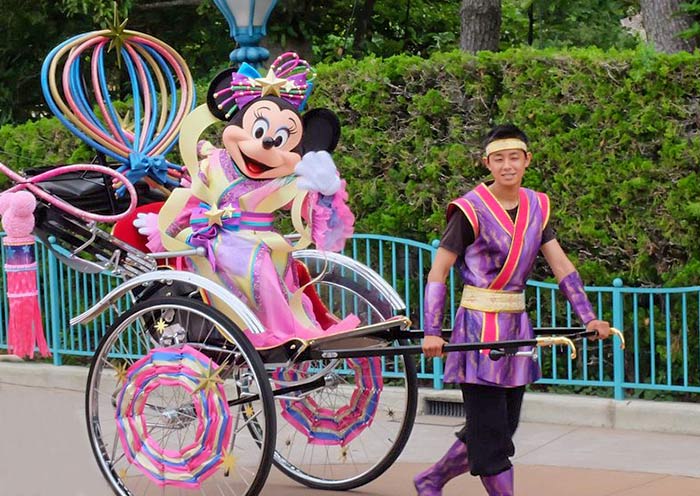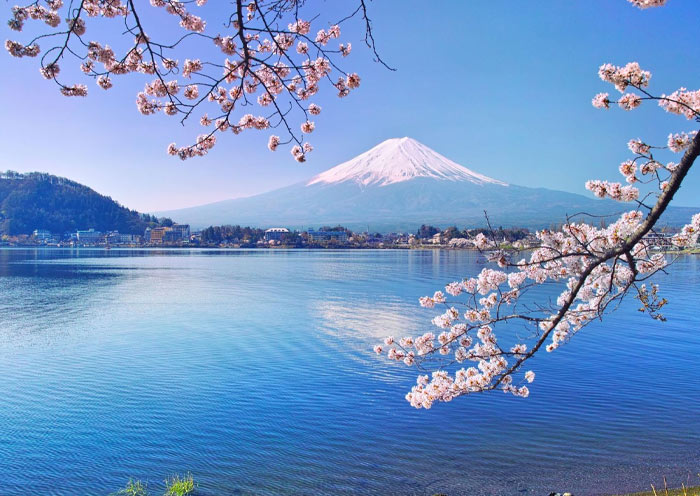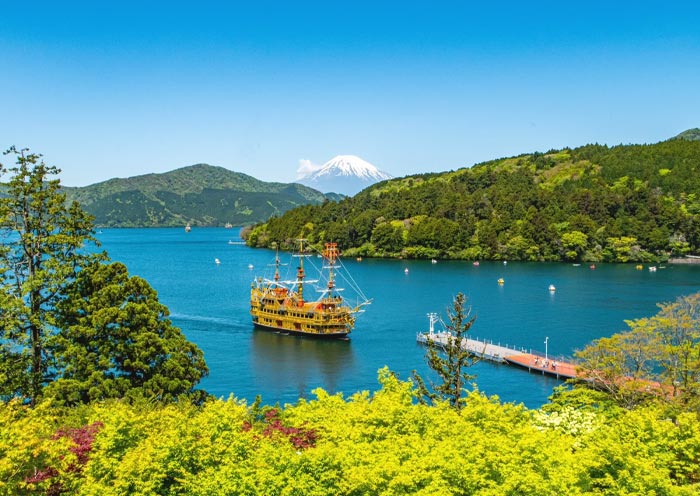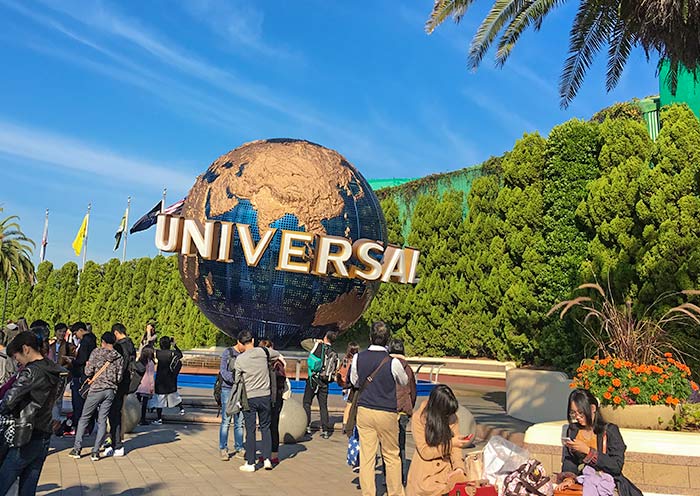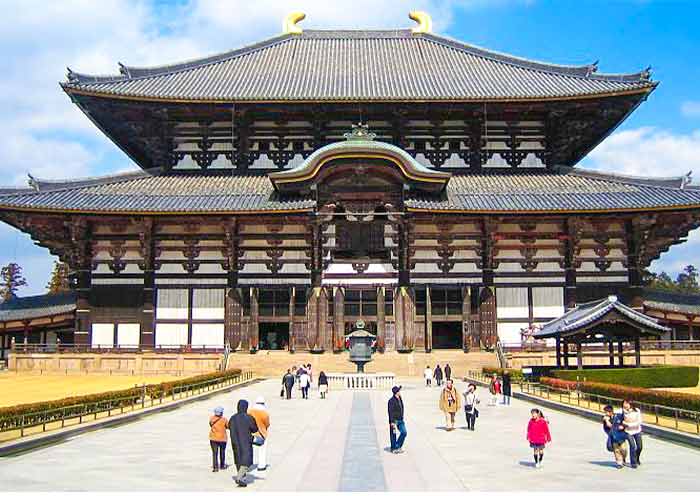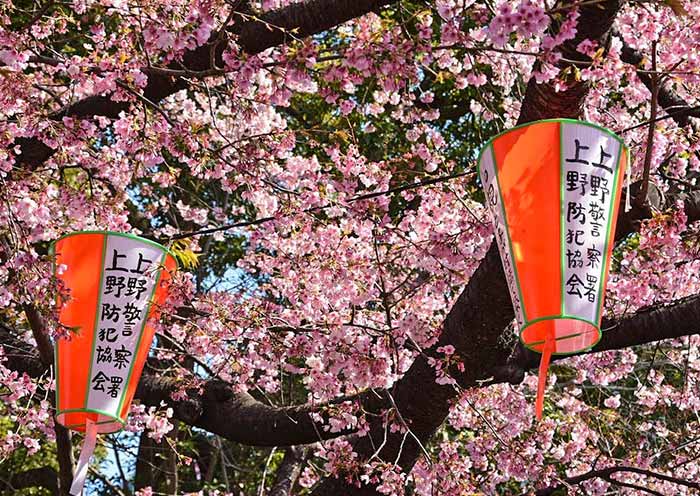Our 8 days group tour in December was amazing! Tokyo’s vibrant streets and Mount Fuji’s snow-capped beauty were breathtaking. Kyoto’s temples and Nara’s deer park offered a serene charm, while Osaka dazzled with its food and nightlife. Hiroshima’s Peace Memorial Park was deeply moving. The crisp winter atmosphere and festive illuminations added a magical touch. Traveling with a small group made the experience fun, seamless, and unforgettable!
7 Days Japan Family Tour with Kids - From Tokyo Disneyland to Kyoto, Nara & Osaka
From
USD 2080![]()
- This is the price per person, based on a group of 6 people, 4-star hotel accommodation, and travel during the regular season.
- Early-bird rates apply to bookings made at least 6 months prior to the departure date.
- The price is subject to change depending on your travel season, group size, hotel class, and potential fluctuations in currency exchange rates.
- Highlights
- Itinerary
- Price
- Trip Notes
- Accommodation
- Photos
- Reviews
Japan Highlights Family Holiday & Best Japan Family Tour with Disneyland
Plan a one week in Japan with kids? Would like to include Tokyo Disneyland or Tokyo DisneySea? Take our 7 Days Japan Family Tour with Kids - From Tokyo Disneyland to Kyoto, Nara & Osaka, you will enjoy a Japan Highlights Family Holiday through the museum, Buddhist Temple, Shinto Shrine, World Heritage Sites, parks, Japanese cuisine, anime street, and more.
Our Best Japan Family Tour with Disneyland is perfect for families with children. Explore Tokyo's famous landmarks, including Ueno Park with its zoo, Senso-ji Temple with views of Tokyo Skytree, Akihabara Electric Town, Tsukiji Outer Market, and Disneyland (or DisneySea). In Kyoto, discover Japanese Buddhism and Shinto at Fushimi Inari Taisha Shrine, enjoy a scenic train journey to Arashiyama, and encounter playful macaques. Your children will delight in feeding deer at Nara Park and explore the vibrant shopping and dining scene inOsaka's Dotonbori District.
Book your 7 Days Japan Family Tour with Kids now, and enjoy a Japan Highlights Family Holiday by visiting Tokyo, Kyoto, Nara & Osaka.

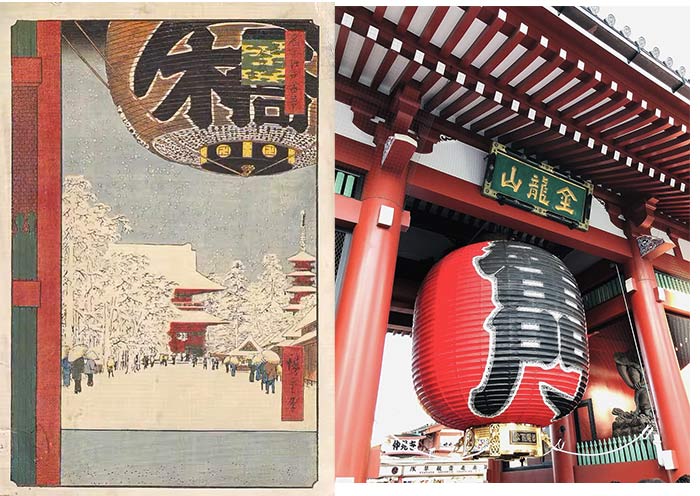
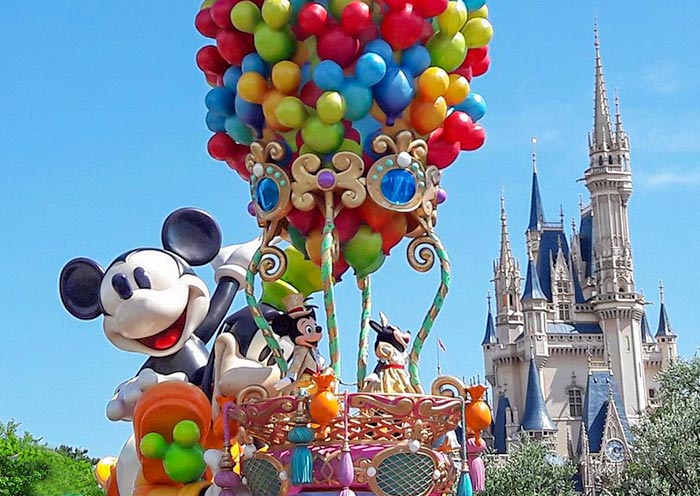
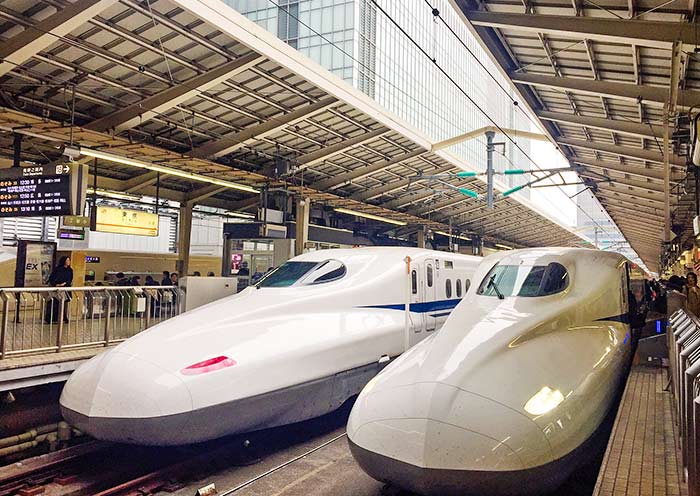
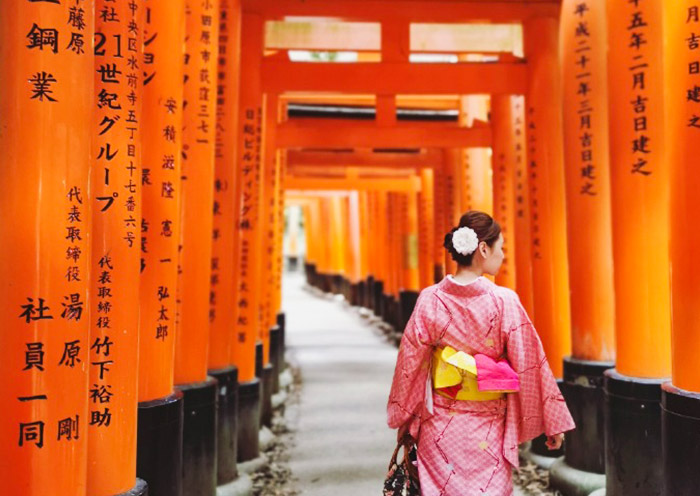
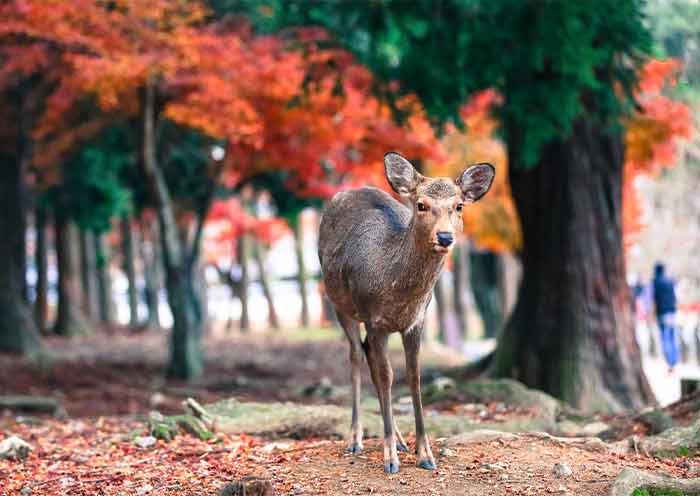
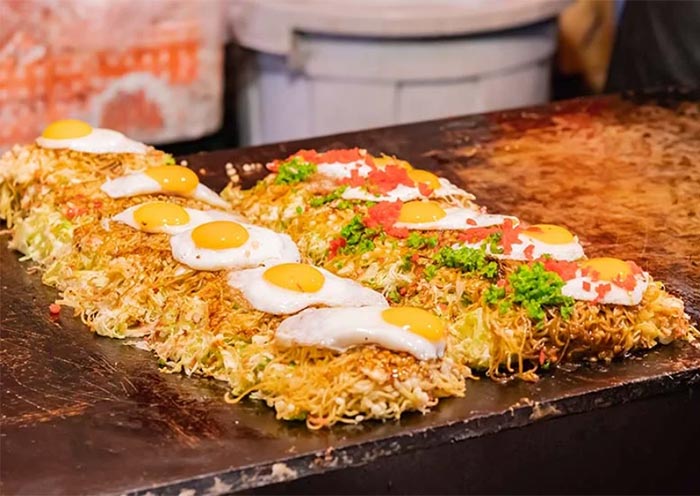
Itinerary at a Glance
Tokyo (3.5 Days)
Ueno Park, Senso-ji Temple, Akihabara Electric Town, Tsukiji Outer Market (Tsukiji Fish Market), Tokyo Disneyland (or Tokyo Disneysea)
Kyoto (1.5 Days)
Sagano Scenic Railway, Arashiyama Bamboo Grove, Tenryuji Temple, Togetsukyo Bridge,Iwatayama Monkey Park, Gion Kimono Experience, Ninenzaka and Sannenzaka, Fushimi Inari Taisha Shrine
Japan Nara (0.5 Day)
Nara Park
Osaka (1.5 Days)
Dotombori District, Airport Transfer
Itinerary Day by Day
Konnichiwa(こんにちは)!Welcome to Tokyo, the capital city of Japan! Upon your arrival at the airport in Tokyo, your driver (not English-speaking) will meet you at the exit and then escort you to the hotel. You can have a good rest in your hotel and get ready to explore Tokyo with your guide the next day.
As one of Japan and Asia's largest economic centers, Tokyo is a hub for Japanese culture and art, with numerous museums, art galleries, theaters, and cultural venues, serving as a vital platform for artistic activities and cultural exchanges. Tokyo stands as a significant base for technological advancement, nurturing numerous high-tech companies and innovative talents, holding leading positions globally in areas like electronics, automotive, and robotics technology.
Situated at the southern end of the Kanto Plain, Tokyo is surrounded by diverse natural landscapes including Mount Fuji, providing residents with leisure and outdoor activity spaces. At one point, the population of the Tokyo metropolitan area reached 36 million, accounting for one-third of Japan's total population. Despite the high cost of living, Tokyo provides residents with convenient living conditions, offering a plethora of shopping centers, entertainment facilities, and a rich culinary culture ranging from fine dining to street food.
Arrival Ideas:
1. Japan has two commonly used international airports. Narita International Airport, located 63.5 km from the center of Tokyo, is the primary international air hub for Tokyo, where flights from China to Tokyo usually land. Tokyo International Airport (Haneda Airport), is situated 17 km from the center of Tokyo and mainly serves domestic flights within Japan and some international flights, including flights to South Korea and other East Asian regions.
2. Cities that have Direct Flights to Tokyo include, but are not limited to: Beijing, Shanghai, Guangzhou, Shenzhen, Hangzhou, Xi'an, Chengdu, Chongqing, Hong Kong, Taipei, Kaohsiung, Seoul, Singapore, Bangkok, Kuala Lumpur, Jakarta, Bali, Manila, Ho Chi Minh City, Hanoi, and more. Please note that flight information is subject to changes based on time and market demand. Contact us to obtain the latest flight information and prices.
3. In Japan, using public transportation such as the Subway JR trains is Recommended to save costs, avoid traffic congestion, and help reduce carbon emissions. Taxi Fares in Japan are relatively high, with a starting fare of around 660 Japanese yen and 140 yen per km. Waiting time is also charged. Surcharges are applicable during nighttime and peak hours (+20%), and expressway tolls are additional. Extra fees are levied for large luggage. For instance, a taxi ride from Tokyo Tower to Narita Airport, covering about 60-70 km,might cost around 25,000-35,000 Japanese yen (roughly 170-237 USD).
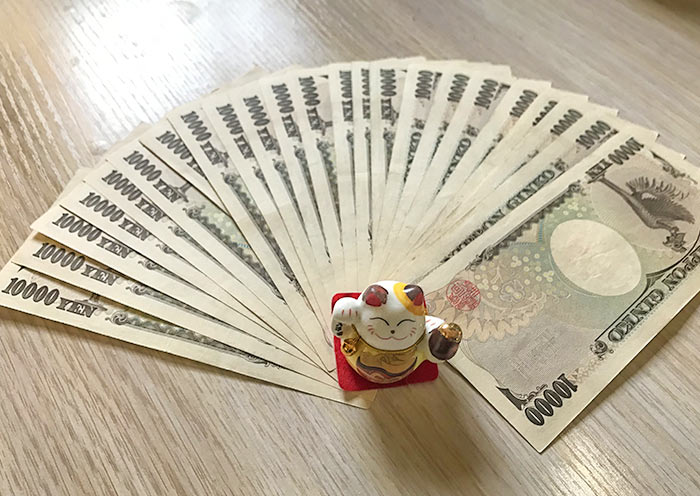
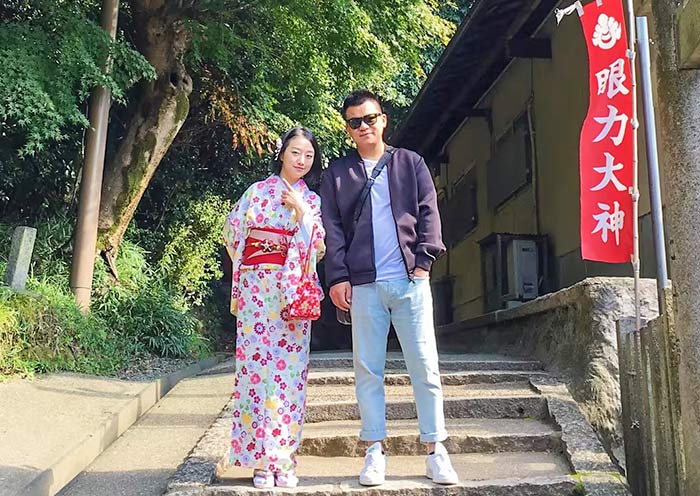
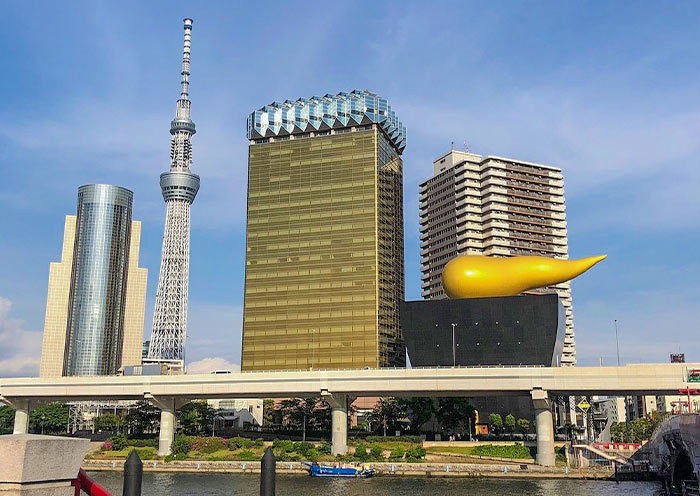
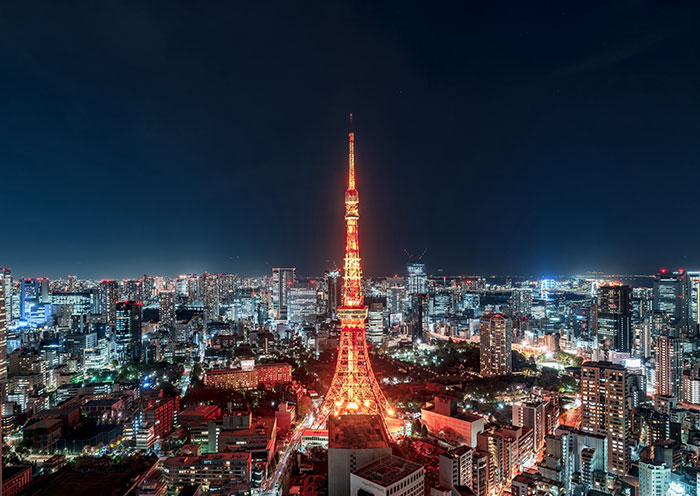
Full day explore Tokyo. You will visit Ueno Park, Senso-ji Temple (a Buddhism Temple; view Tokyo Skytree), Akihabara (The Electric Town) & Tsukiji Fish Market.
In the morning head to Ueno Park. It is one of the city's largest parks and one of Japan's most famous cherry blossom viewing spots, boasting over 1,300 cherry trees. The cherry blossoms bloom every spring, especially in early April, creating a breathtaking spectacle of falling cherry petals carried by the wind. A visit to Ueno Zoo is a highlight for kids. The zoo is home to a variety of animals, including its famous giant pandas. With beautifully landscaped areas and family-friendly exhibits, it’s a delightful experience for children and adults alike.
Then, head to Senso-ji Temple (Asakusa Kannon Temple), a must-visit for anyone traveling to Tokyo. Here, you can experience the heart of old Tokyo and its vibrant atmosphere. You can take photos that frame Senso-ji Temple & the Tokyo Skytree (Japan's Tallest Tower; 634 meters) together.
Senso-ji Temple was built in 628 AD and has a history of over 1,300 years, making it one of Japan's oldest temples. It not only witnesses Japan's historical changes but also carries a rich Buddhist culture. The architectural style of Senso-ji Temple blends Japanese traditional culture and art, with rich colors and exquisite carvings. The main buildings include the main gate (Kaminarimon; a landmark of Tokyo), the bell tower, the Five-story Pagoda (a landmark of Tokyo), and the main hall, all reflecting ancient Japanese architectural style and religious beliefs.
Kaminarimon is the iconic structure of Senso-ji Temple, towering at 11.7 meters high and 21.7 meters wide, truly spectacular. Giant red lanterns hang in front of the gate, with the words "Kaminarimon" prominently displayed. Kaminarimon is not only a symbol of Senso-ji Temple but also one of Tokyo's most famous landmarks. You may have seen the work of Utagawa Hiroshige, one of the "Three Greats of Ukiyo-e," in his piece "One Hundred Famous Views of Edo: Asakusa Kaminarimon," depicting a snowy scene of the Kaminarimon gate, celebrated for its delicate portrayal and profound imagery, becoming a masterpiece of Ukiyo-e art. The area is bustling, and crowded with people coming to pray and seek blessings for health, peace, and happiness. Around Senso-ji Temple, you can taste various Japanese cuisines, purchase unique souvenirs, and participate in various celebratory activities.
After that, you can explore Akihabara (The Electric Town). Akihabara is a district in Tokyo renowned as the center of anime, manga, video games, and electronics. It's a paradise for tech enthusiasts, you'll find countless stores selling anime merchandise, computer parts, and electronics. On the streets of Akihabara, you can see various cosplay enthusiasts showcasing and interacting while dressed in costumes of their favorite anime or game characters.
You can also visit Tsukiji Fish Market. It was once the world's largest fish market, famous for its tuna auctions. However, in 2018, it relocated to a new, larger facility called Toyosu Market. You can still enjoy fresh seafood (sashimi, sushi, or seafood rice bowls), purchase kitchenware, and learn about a variety of seafood, including the characteristics, cooking methods, and nutritional value of different types of seafood.

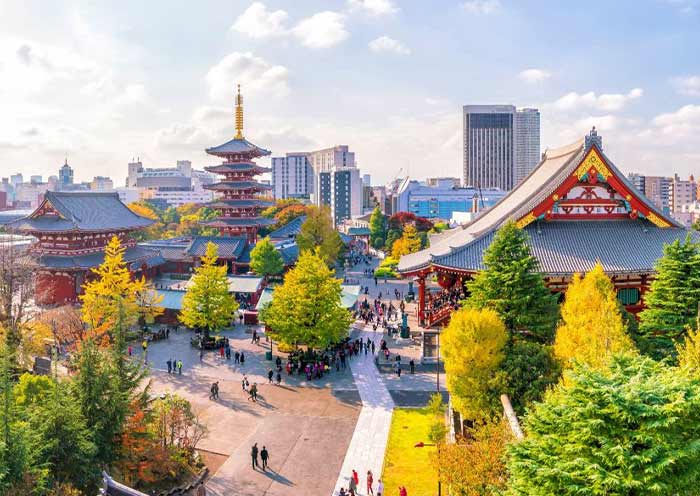
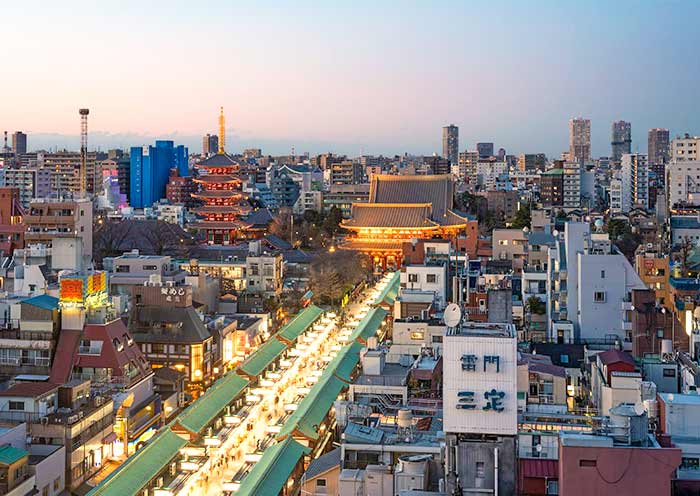
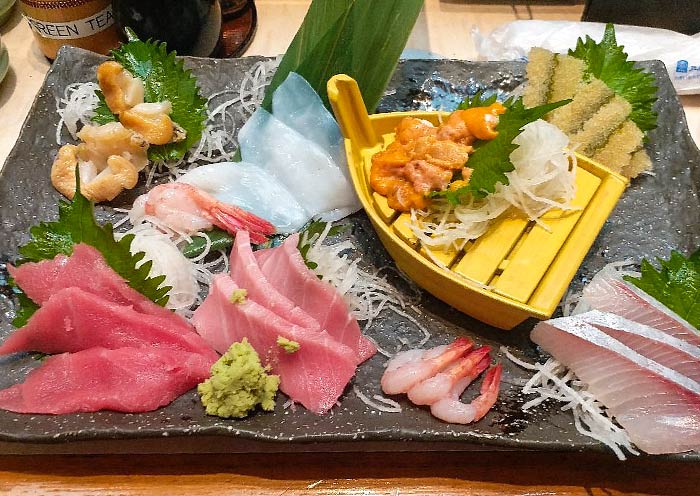
Enjoy your free day in Tokyo Disneyland or DisneySea.
Note: Today we only include transfer service. If you need assistance with ticket booking, please consult with our travel advisor.
Tokyo Disneyland seamlessly blends Western Disney magic with traditional Japanese elements, creating a harmonious and captivating experience. Tokyo Disneyland is renowned for its impeccable attention to detail, from the architecture to the character interactions. Many attractions are exclusive to Tokyo Disneyland, offering a fresh perspective on beloved Disney stories. The park's exceptional customer service is legendary, making guests feel welcomed and cared for. Beyond attractions, Tokyo Disneyland offers captivating parades, enchanting shows, and unforgettable character meet-and-greets throughout the day.
Tokyo Disneyland’s themed lands:
1. World Bazaar: The main entrance area with shops and restaurants.
2. Adventureland: Explore exotic lands and embark on thrilling adventures.
3. Westernland: Experience the Wild West with cowboys, outlaws & exciting attractions.
4. Fantasyland: Immerse in classic Disney fairy tales & meet beloved characters.
5. Tomorrowland: Wonders of the future with futuristic attractions & technology.
6. Critter Country: Enjoy the outdoors and encounter playful animals.
Must-see attractions of Tokyo Disneyland:
1. Cinderella Castle: The iconic centerpiece of the park, offering a magical atmosphere.
2. Space Mountain: A thrilling roller coaster experience through space.
3. Jungle Cruise: A humorous boat ride through a jungle filled with exotic animals.
4. Haunted Mansion: A spooky and entertaining haunted house attraction.
5. It's a Small World: A cheerful boat ride featuring dolls from around the world.
<Alternatively, you can choose to explore Tokyo DisneySea. DisneySea is themed around the sea and water, offering a refreshing and immersive experience unlike any other Disney park. From high-speed roller coasters to gentle boat rides, DisneySea offers a diverse range of attractions to suit all tastes. You can also enjoy a wide variety of culinary delights, from classic Disney treats to unique Japanese-inspired dishes. You can explore Tokyo DisneySea's 7 themed ports: Mediterranean Harbor, American Waterfront, Port Discovery, Mermaid Lagoon, Arabian Coast, Lost River Delta, and Mysterious Island. The Must-see attractions include Journey to the Center of the Earth, Indiana Jones Adventure, Toy Story Mania, Soarin', Around the World, and Big Thunder Mountain Railroad.>


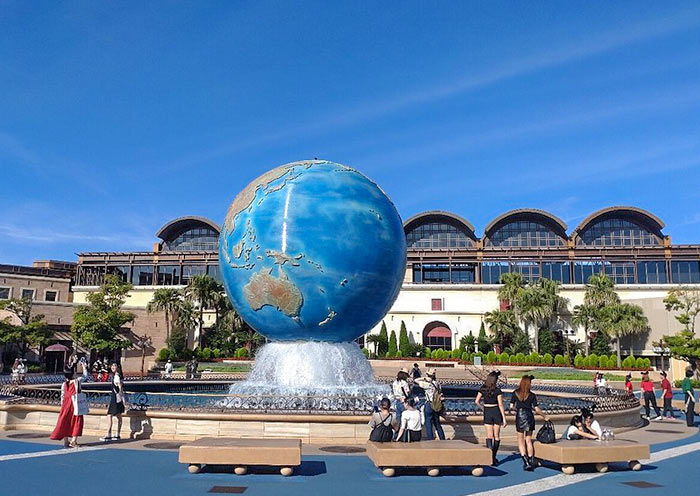

Today, you will take the Shinkansen (Bullet Train) to Kyoto from Tokyo Station. A driver will wait for you at the hotel entrance at the scheduled time and transport you to Tokyo Station.
Shinkansen Ride: At Tokyo Station, board the Shinkansen (Bullet Train) bound for Kyoto Station (about 2.5 hours). This fast and comfortable journey offers a chance to enjoy the changing landscapes of urban and rural Japan. Tokyo Station, a prominent feature on the ¥10,000 Japanese banknote, is more than just a transportation hub, it is a historical landmark and a vibrant destination in its own right. As the main gateway to the city, Tokyo Station has played a crucial role in Japan's modernization and economic development. Its impressive red-brick facade and intricate details are a testament to Japanese architectural prowess. The station has become a symbol of Tokyo and a popular tourist attraction.
Upon arrival in Kyoto, your driver will greet you and transfer you to your hotel. Check in, take some time to settle in, and rest.
Kyoto, located in the Kansai region of the country, was once the capital of Japan. It epitomizes ancient Japan and is famous for tranquil temples, exquisite gardens, colorful shrines, grand imperial palaces, and ornate castles. Boasting 17 UNESCO World Heritage sites, over 1,000 Buddhist temples, and more than 400 Shinto shrines, Kyoto is among the world's most culturally rich cities. It's also known for traditional Japanese arts and practices, such as tea ceremonies, kaiseki dining (a traditional multi-course meal), and ikebana (flower arranging). It remains one of the best places to see geishas, who are traditional Japanese female entertainers known for their refined skills in arts, music, dance, and conversation.
Free Time Ideas in Kyoto:
1. Evening Stroll Along the Kamo River: This river flows through the city and provides walking paths with beautiful views. Many cafes and restaurants along the river have terraces, perfect for a relaxing end to your day.
2. Walk the Philosopher's Path: Enjoy a peaceful walk along the Philosopher’s Path, a stone path lined with cherry trees that follows a canal in northeastern Kyoto. This path is especially beautiful during cherry blossom season but offers a serene experience year-round.


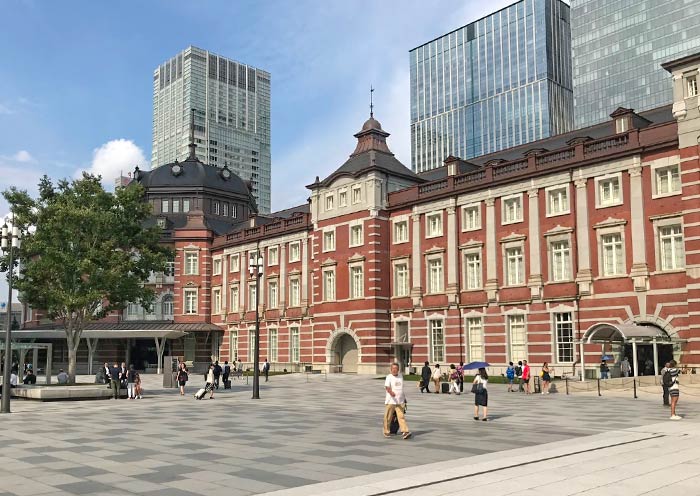
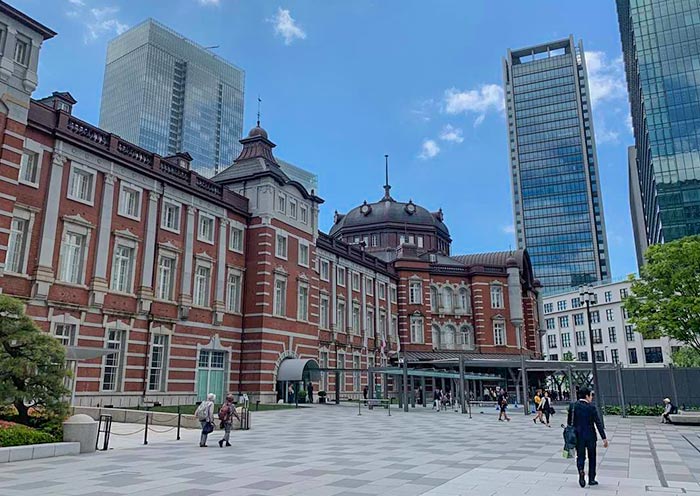
In the morning, head to the Arashiyama area in the western part of Kyoto and take a ride on the Sagano Scenic Railway, also known as the “Romantic Train”. It is a sightseeing train line that runs between Arashiyama and Kameoka.On the way, the train runs along the Hozugawa River gorge, offering fantastic views of the forests and mountains. It is particularly scenic during the autumn foliage season, but in the spring passengers can enjoy the cherry blossoms, in the summer a cool breeze and the sound of cicadas, and in the winter dramatic snowy landscapes.
Exit at Arashiyama Station and walk to the nearby Arashiyama Bamboo Grove. The famous pathway is surrounded by towering bamboo, which creates an otherworldly atmosphere. This path leads you through one of Kyoto's most photographed landscapes.
After a short walk, explore Tenryuji Temple which is designated as a UNESCO World Heritage Site and is one of the so-called Kyoto Gozan or "five great Zen temples of Kyoto". Don't miss the garden, designed by the famous Zen master Muso Soseki, which reflects the concept of shakkei ("borrowed landscape"). Tips: The temple and its gardens are particularly beautiful during the cherry blossom season in spring and the colorful foliage season in autumn.
Take a leisurely walk along the Togetsukyo Bridge, an iconic historical wooden bridge offering picturesque views of the surrounding mountains and river, encapsulating the tranquil beauty of the area. Also in the area, you will visit the Iwatayama Monkey Park where macaques roam freely. After a short hike to the summit, you'll be rewarded with stunning panoramic views of Kyoto city and the chance to interact with the monkeys up close.
After visiting the Arashiyama area, you will drive back to downtown Kyoto. Next, explore Gion, Kyoto's famous geisha district. Here, you might catch a glimpse of geisha (geiko) in their elaborate kimonos and traditional makeup. As you wander through the cobblestone streets of Gion, take a moment to appreciate the beautifully preserved machiya (wooden townhouses), ochaya (teahouses), and exclusive ryotei (traditional Japanese restaurants).
To make your visit even more memorable, we've arranged a special kimono experience for you here. Step into the world of traditional Japanese culture by dressing in an exquisite kimono, complete with intricate accessories
Then, walk up the well-preserved streets of Ninenzaka and Sannenzaka. These charming, sloping streets are lined with traditional shops and quaint tea houses, offering a nostalgic glimpse into Kyoto's past. As you stroll through these areas, you can shop for unique crafts, sample local snacks, and perhaps stop at a café to relax and soak in the atmosphere of old Kyoto.

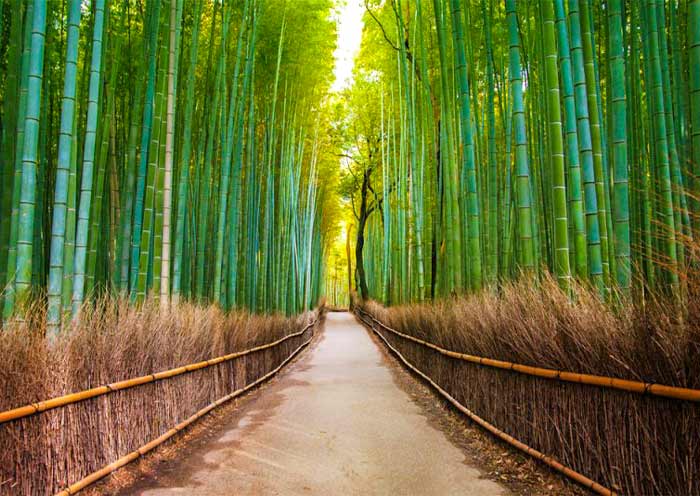

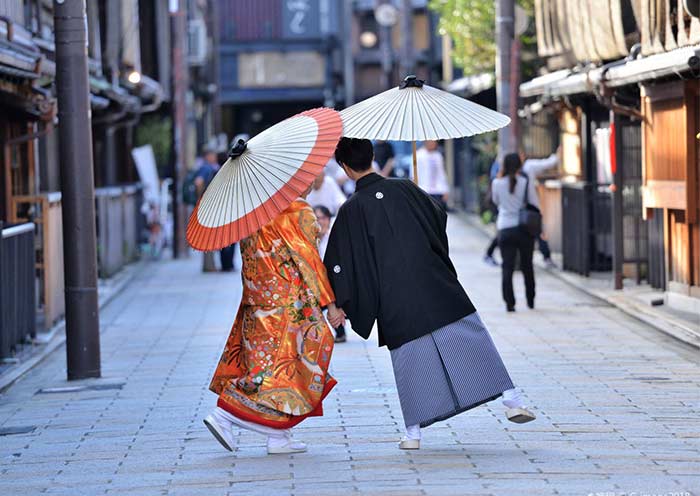
Today, you will visit Fushimi Inari Taisha Shrine before departing from Kyoto. Then you'll travel to Osaka (85km, 2.5 hours), stopping in Nara to visit Nara Park. Upon arrival in Osaka, you will explore the Dotonbori District.
Start morning in Kyoto bright and early at one of its most iconic sites - the Fushimi Inari-taisha Shrine to beat the crowds.
Fushimi Inari Taisha Shrine is famous for its thousands of vermilion torii gates, known as Senbon Torii (“thousands of torii gates”). Layers upon layers of vermilion torii gates line the lush, wooded hillside, forming a seemingly endless corridor. The vibrant orange and black gates contrast beautifully with the surrounding greenery, creating a visually stunning and almost otherworldly path that is highly photogenic.
Fushimi Inari Taisha was founded in the early 8th century (711 AD) and is primarily dedicated to Inari, the Shinto god of rice, fertility, sake, agriculture, and industry. As you explore the shrine, you will encounter hundreds of fox statues. Said to be the messengers of the god Inari, who is associated with cereal grains, these fox statues often symbolize the deity. Many of these fox statues are depicted holding a key in their mouths, which is said to open the granary.
Tips: Hiking to the summit of the mountain and back will take two to three hours, but many people go only as far as the Yotsutsuji intersection because there are fewer torii gates beyond this point. It will take 30 to 40 minutes to reach Yotsutsuji.
Depart from Kyoto and head to Nara, an approximately 1.5-hour car car ride. Walk to Nara Park. This park is famous for its hundreds of freely roaming deer, considered messengers of the gods inShinto tradition. Purchase some shika senbei (deer crackers) to feed the deer as you stroll through the park.
After the tour, drive to Osaka (typically takes around 45 minutes to an hour). Osaka, Japan's third-largest city and a major economic hub, is renowned for its rich history, diverse cuisine, distinctive culture, and robust economic strength. The city's unique sense of humor and open personality make it an exceptionally interesting place, more colorful than most cities. Acres of concrete are covered with dazzling neon lights and brightly colored storefronts. Osaka is a city that loves to eat, known as the "nation's kitchen", boasting a wide variety of culinary delights.
Next, you will experience the unique charm of the city through its street food and shopping tour. Then, head to the lively district of Dotonbori, where waterways are lined with luminous advertisements and signs. It's especially glitzy during the holiday season, with decorations strung across the bridges. Full of fantastic restaurants, clubs, and karaoke bars, it's the city's go-to area for entertainment. Take a photo at the iconic Glico Man sign. Try takoyaki, ball-shaped octopus bites, kushikatsu (Japanese deep-fried skewered meat and vegetables), and okonomiyaki, a savory Japanese pancake topped with whatever you like.
Stay overnight in Osaka.
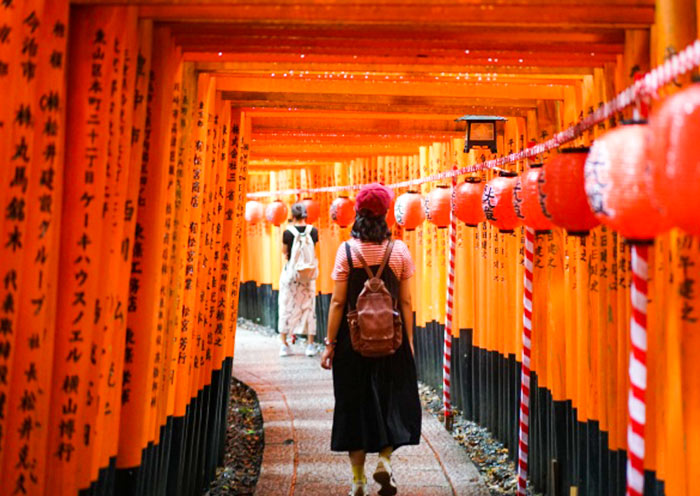
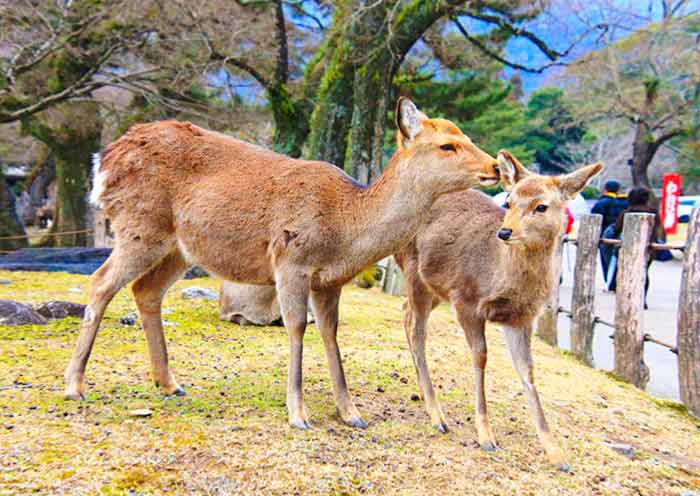
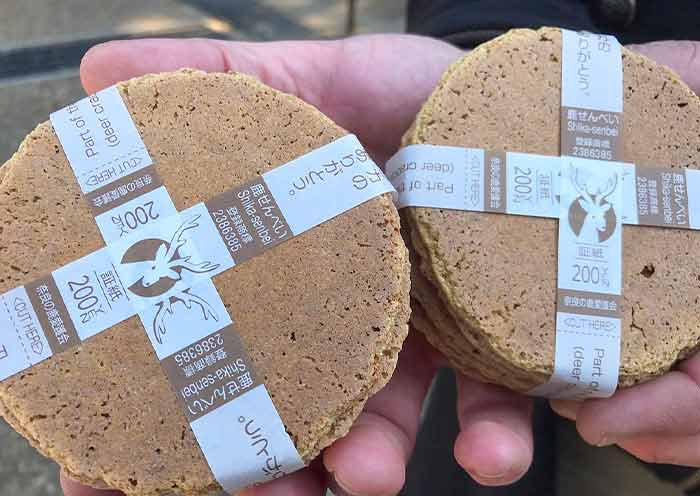
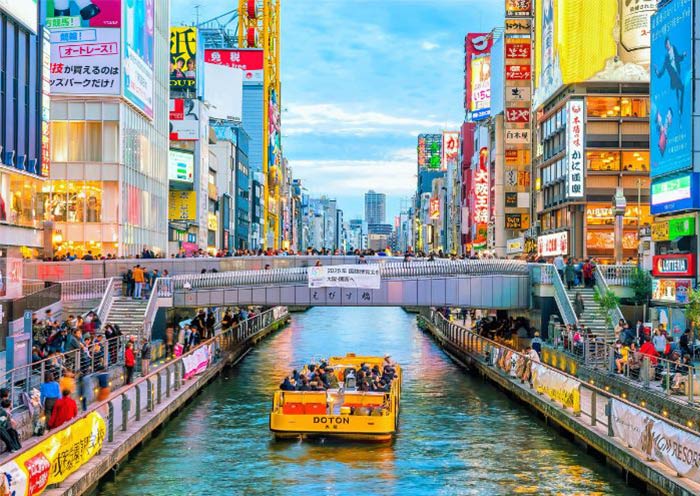
It is time to end your 7 Days Japan Family Tour. You will have some free time in Japan to explore further on your own until your driver escorts you to the airport for your flight to your next destination.
If you prefer to travel longer in Japan, you can extend your Japan Trip to other highlighted parts of Japan, such as Hakone (View Mt. Fuji), Hiroshima, Hokkaido, etc.
Thank you for choosing Asia Odyssey Travel (AOT) for your Asia Tour. We are always here working for you and hope to see you again on your next trip to Asia. Safe journey!
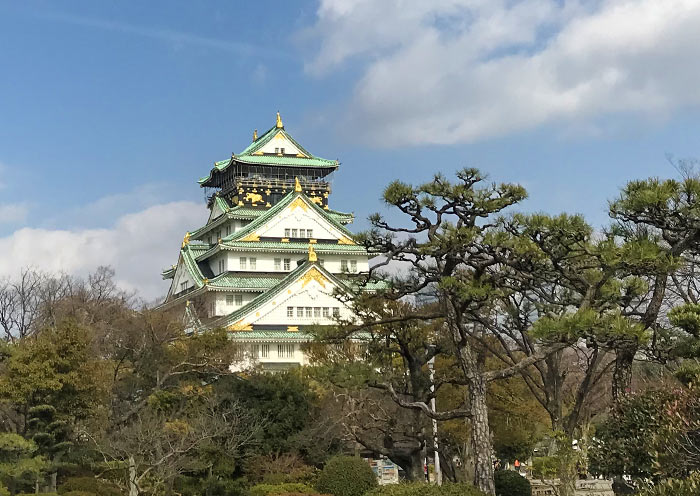
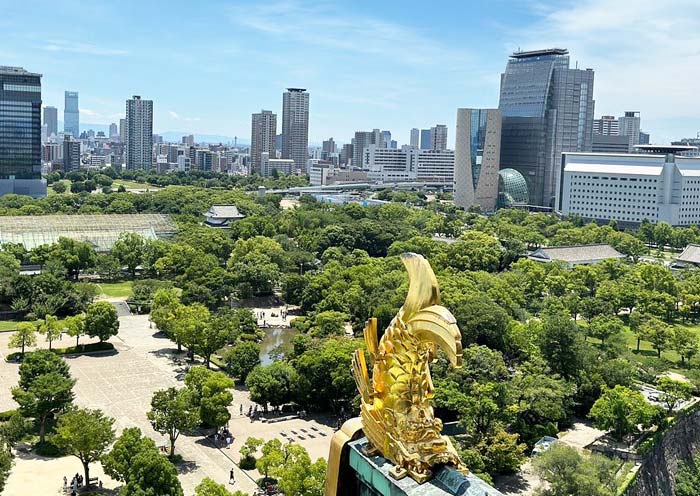
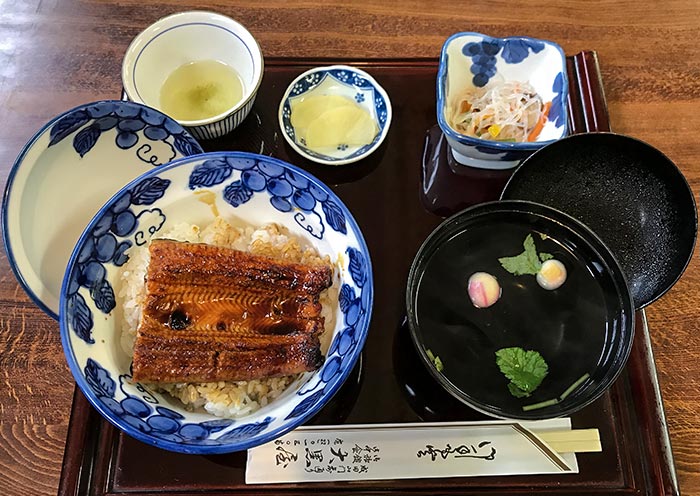
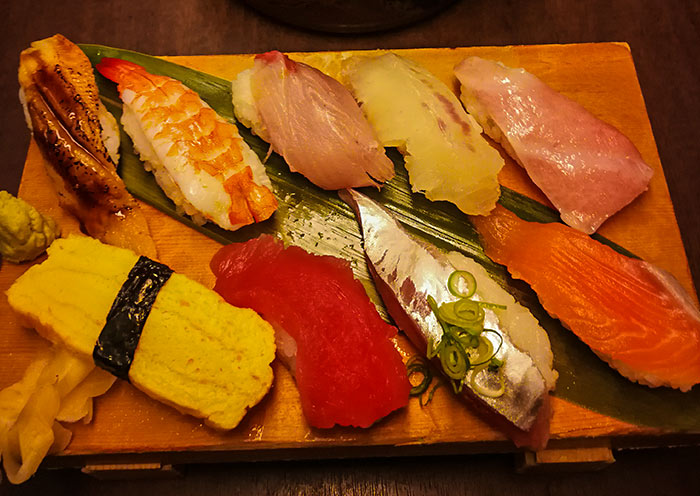
Explore Tour Costs and Request a Free Quote
| Number of People | Regular Season | Spring Season | Autumn Season | Book Tour |
|---|---|---|---|---|
| (Jan, Feb, May, Jun, Jul, Aug, Sep) | (Mar, Apr) | (Oct, Nov, Dec) | ||
| 2 Persons | from $3200 pp | from $3920 pp | from $3380 pp | Free Enquiry |
| 4 Persons | from $2250 pp | from $2890 pp | from $2450 pp | Free Enquiry |
| 6 Persons | from $2080 pp | from $2630 pp | from $2200 pp | Free Enquiry |
What’s Included & What’s Excluded
What's Included:
What's Excluded:
Important Travel Tips for Visiting Japan
Get the right visa. Depending on your nationality and the length of your stay, you may need to apply for a visa in advance. You can do this online or at a Japanese embassy or consulate. Many countries are part of Japan’s visa exemption program, allowing their citizens to enter Japan for short stays without a visa for tourism. Always check if your country is on this list before applying for a visa. If you have any questions, feel free to contact our travel experts for more information.
The best time to visit Japan depends on your interests:
Spring (March to May): Ideal
for witnessing the cherry blossoms and enjoying mild weather. Major cities like Tokyo, Kyoto, and Hiroshima
are particularly beautiful as cherry trees bloom spectacularly.
Summer (June to
August): Perfect for experiencing vibrant festivals such as Gion Matsuri in Kyoto,
Tanabata Matsuri across the country, and enjoying the natural beauty of Hokkaido, which is less humid than
the rest of Japan. Note that early summer (June) is the rainy season.
Autumn (September to
November): Offers stunning fall foliage, making it a great time for hiking and temple
visits. The weather is cool and pleasant, ideal for outdoor activities.
Winter (December to
February): The best time for winter sports, especially in regions like Hokkaido and the
Japanese Alps. Onsens (hot springs) are also a popular attraction during the cold months.
Bring Cash. Despite advances in digital payment, many smaller vendors, temples, and rural
areas operate predominantly with cash. It’s wise to keep some yen on hand at all
times.
Universal Travel Adapter. Japan uses 100V with two straight thin
pins.
Passport: Ensure it’s valid for at least six months beyond your date
of travel.
Visa (if required): Make sure you have the right visa for your
travel.
Travel Insurance Information: Always good to have on hand.
Bow when greeting: A slight bow is a common way to say hello, thank you, or
sorry.
Be mindful of your noise level: Japanese culture values quietness,
especially in public transportation and residential areas.
Follow the rules: Whether
it's waiting in line or adhering to signage, following local rules and etiquette is highly
valued.
Etiquette in temples and shrines: Wear modest clothing and follow specific
customs such as washing hands and mouth before entering a shrine or temple. Photography might be restricted
in sacred areas.
Looking for more travel guides for first-time visitors to Japan? Want to gather additional information to plan your trip? Our team of professional travel experts has written over 40 articles about Vietnam. Please check out ourJapan Travel Guide for inspiration and detailed insights.
Hotel Conditions for Your Japan Tour
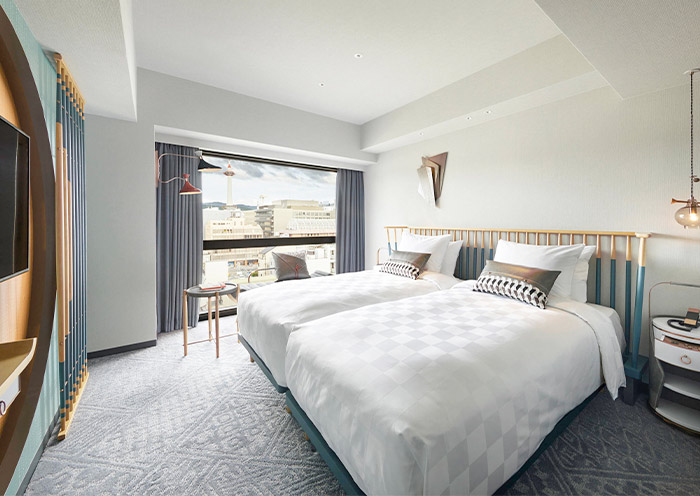

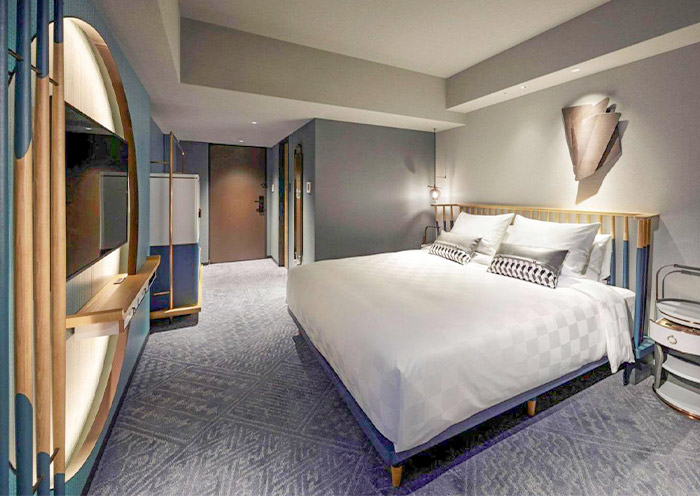
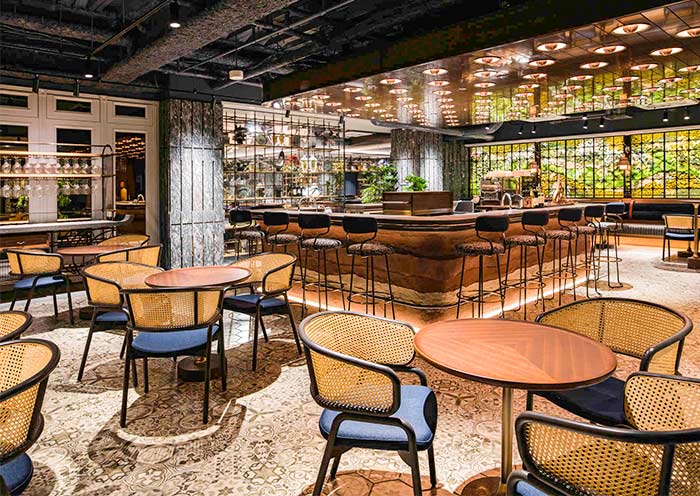
We offer a range of accommodation options to suit various preferences and budgets: luxurious 5-star hotels, comfortable 4-star hotels, and economical 3-star hotels. Our selected hotels are conveniently located close to the city center or popular tourist spots.
For those seeking a more distinctive lodging experience, we also offer Traditional Ryokans, Machiya, Onsen (hot springs) Hotels, etc. If you have specific needs or preferences, please consult with your travel advisor.
Tips: Be aware that hotel room sizes in Japan may be smaller compared to those in other developed countries due to the scarcity of land. If your budget allows, it is recommended to opt for a higher category of hotel, which will generally offer more comfort.
Photo Gallery for This Itinerary
Latest Japan Tours Reviews from Our Customers

Sam Lin
Singapore
Date of Experience: Dec 24, 2024
Tour Customized by: Vincent
You May be Interested in This Tour: 8 Days Best Japan Group Tour: Japan Highlights & Hiroshima

Zhang Xin Hua
Malaysia
Visiting Japan’s Golden Route in October was incredible! From Tokyo's vibrant city life to the serene beauty of Mount Fuji, every stop was unforgettable. Kyoto’s temples and Nara’s friendly deer captured Japan’s charm, while Osaka’s food scene was a delight. The mix of tradition and modernity made it a perfect 7-day journey!
Date of Experience: Oct 26, 2024
Tour Customized by: Allan
You May be Interested in This Tour: 7 Days Japan Golden Route Tour in Small Group

Dan Z
Washington DC
Date of Experience: Aug 24, 2024
Tour Customized by: Rex
You May be Interested in This Tour: 7 Days Japan Kansai Tour with Hiroshima: Osaka, Kyoto, Uji & Nara
Price: From USD 2080 pp
(Based on a private tour for 6 persons staying in 4-star hotels. Prices may vary depending on the itinerary, travel dates, and group size. )
(Book at least 6 months in advance)
